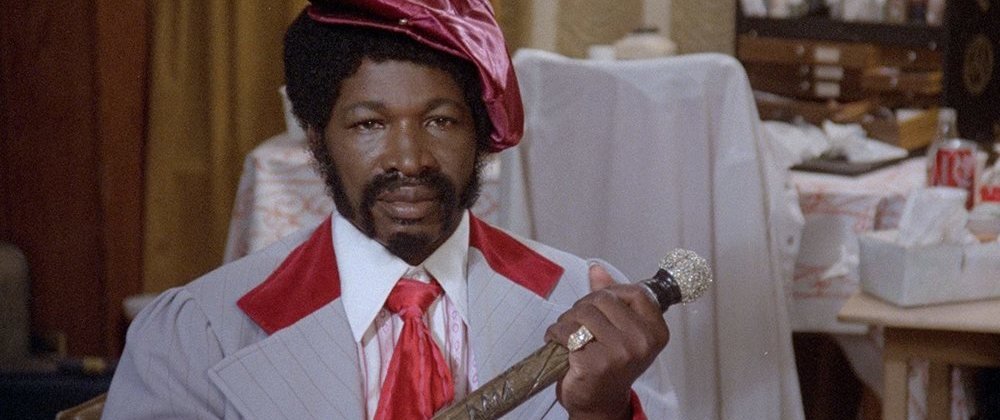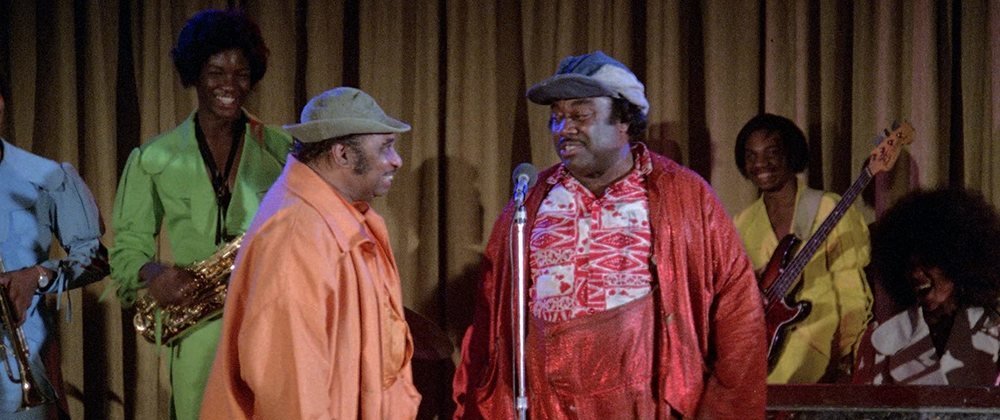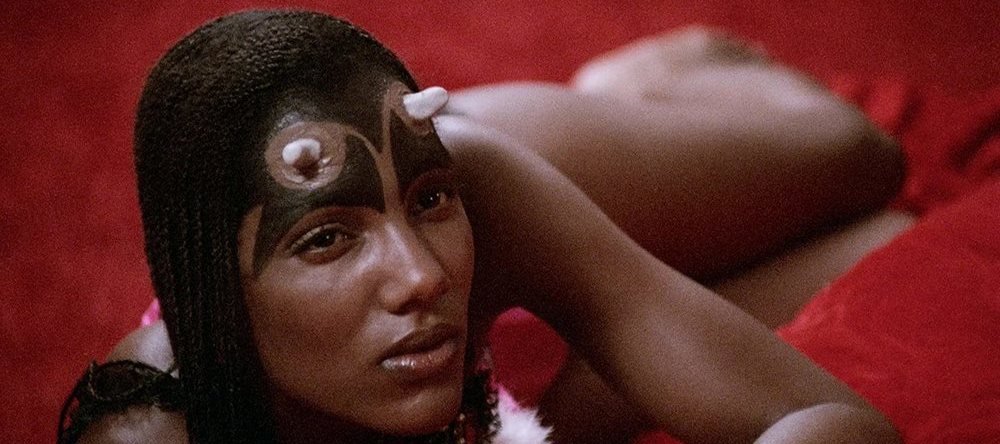PETEY WHEATSTRAW: Going Beyond Good And Bad With Rudy Ray Moore
If you're lucky, you will have a "road toDamascus" moment as a cult fan where you realize that a film'sentertainment value matters as much as whether it is objectively"good" or "bad." Fora moment, put aside such issues as whether a film is well-written, slickly madeor acted in a convincing manner. Is itengaging from start to finish? Does it consistently surprise you? Is it neverboring for a moment? Are there moments where your mind is blown by what you arewitnessing on the screen? If the answer to all those questions is "yes"then the movie has tremendous entertainment value and it doesn't matter if it'sgood or bad.

That brings us to PeteyWheatstraw: The Devil's Son-In-Law. This was Rudy Ray Moore's third starvehicle and his second film with director Cliff Roquemore, who also wrote thefilm this time using one of Moore's comedy album routines as a springboard.What emerged was a curious mixture of comedy, horror and morality play thatremains one of the most mind-expanding movie experiences Schlockmania has everwitnessed. It objectively fits the "bad movie" tag but it delivers somuch entertainment value it's unlikely you will care.
Moore toplines as the title character, a professionalnightclub comic and freelance kung-fu expert who comes to Los Angeles toperform. Unfortunately, longtime rivals Leroy and Skillet (played bythemselves) are opening a club at the same time with mob money and can't affordthe competition... so they have their goons shoot him. Luckily for Petey, theDevil (G. Tito Shaw) happens upon the scene and uses his power to revive him sohe can get revenge. The catch is Petey must marry the Devil's hideously uglydaughter. Petey agrees to this deal and tries to figure how to get his revengewithout having to give the Devil his due.

PeteyWheatstraw often gets goofed on by the bad movie cultists for alot of obvious reasons: the script operates on its own bizarre logic, theperformances are frequently outlandish, it tries to deliver elaboratesupernatural effects on a five-figure budget and the kung-fu exists at aplay-acting level. The combination of an extremely low budget and lack ofexpertise also leads to weird technical goofs like a band performance scenewhere the sound editing is so bungled that you either hear only the performeron screen with the rest of the band missing or a see the drummer playing fillsthat you can't hear on the soundtrack.
However, if you view Petey Wheatstraw with a focus on its entertainment value, all ofthe aforementioned issues recede into the distance. This film is wildlyentertaining from start to finish: every two minutes, there's a wild sight gag,dialogue exchange or outlandish bit of plotting. A few examples of thehighlights in this movie: Petey being born as an elementary-school age childand mastering kung fu in the first five minutes of the film, a truck full ofwatermelons exploding, a funeral procession getting machine gunned by hoods, Peteyusing a cane from the devil to do a series of good deeds, a villain soterrified by Petey's resurrection that he defecates in his pants, a kung fubattle with the devil's minions, a Satanic bachelor party with horned demonicprostitutes, etc. Call this movie amateurish if you like it but it's got a workethic like few others.

Roquemore throws himself into the direction to live upto his outlandish scenario: he deploys sped-up action, slow motion, zooms, wildmontages, lo-fi optical effects and any other thing he can think of to pump upthe onscreen action. The visuals are consistently eye-popping, mixing sturdycinematography from reliable b-movie cinematographer Nicholas Josef VonSternberg with outrageously colorful decor and costumes dreamt up by Moore'sco-star Jimmy Lynch. The look this triumvirate creates could be described as"pimpadelic/funkadelic live-action cartoon."
Moore gives an endearingly wild performance to anchor allof Roquemore's offbeat creative flourishes, a commanding turn that mixes hisstand-up comedy skills, a burlesque interpretation of kung fu and theconfidence of a ladies' man. Better yet,he's got a full roster of "party album" comedians backing him so thisis like Moore's equivalent of the movies Sidney Poitier and Bill Cosby madetogether in the mid-'70s. The reliable Lady Reed is there as well as Lynch, whogets some of the best lines here, and Leroy and Skillet as the wicked/bumblingbad guys. Also of note: Wildman Steve, who gives an amazing monologue on howthe way one goes to the bathroom reveals whether they have love or larceny intheir heart(!).

In short, Petey Wheatstraw is a guaranteed good time for those tuned into the oddball end of the cult movie spectrum. Like any great "bad movie," it delivers everything you expect from a good movie: consistent entertainment value, energy, inspiration and a sense that the creators are pouring everything they've got into the proceedings to bring a singular vision to life. Once the end credits roll, you won't be debating the issue of whether it was good or bad. You'll just be trying to pick up the pieces of your thoroughly blown mind.
Blu-Ray Notes: Vinegar Syndrome resurrected this fave for blu-ray. It has a great-looking 2K transfer derived from the original negative and a variety of supplements, including trailers, a commentary and the third part of the "I, Dolemite" documentary.


